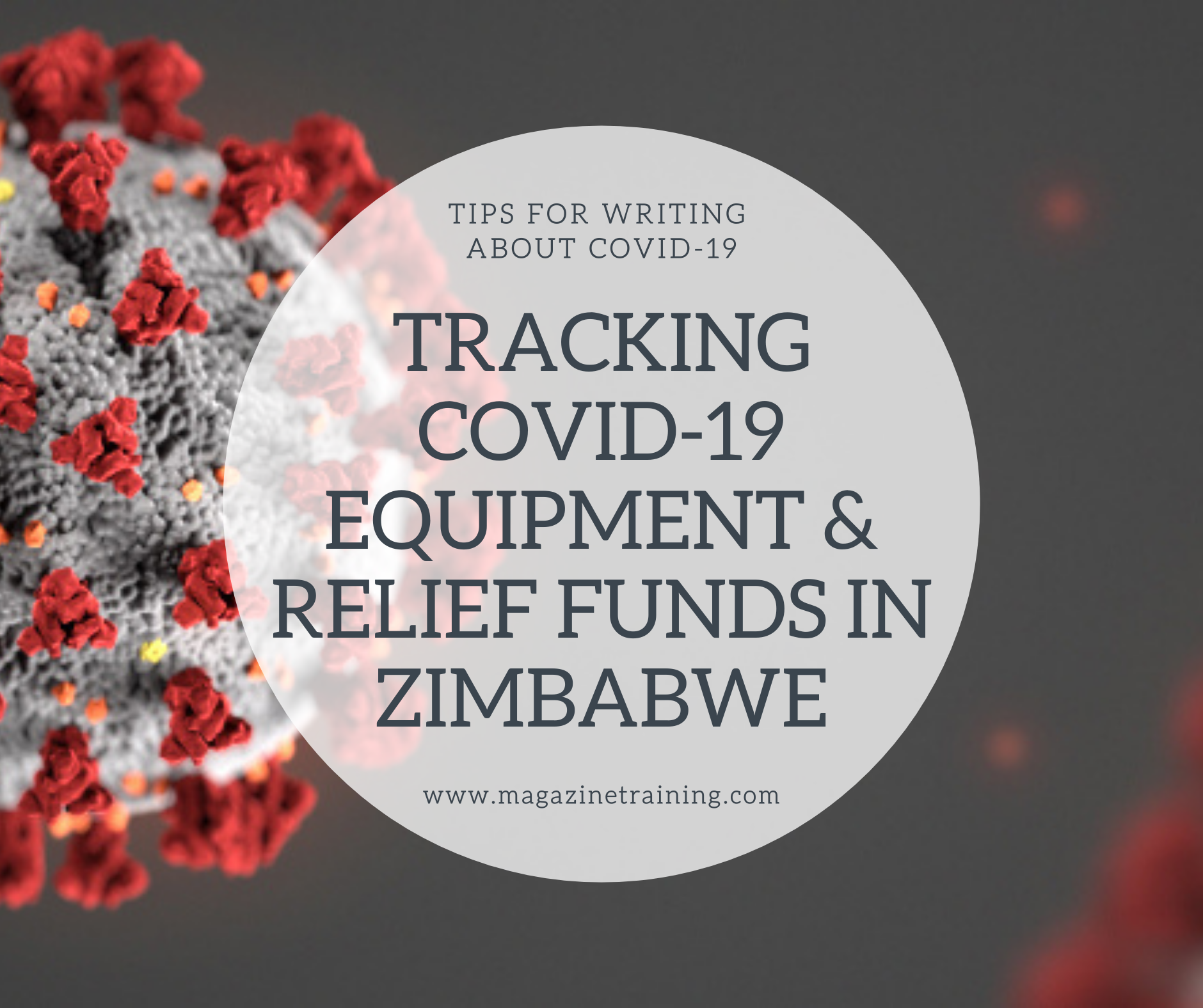
Investigative journalism in Zimbabwe has played a critical role in uncovering corruption in government over the past year — especially when it’s come to the procurement of COVID-19 equipment and the distribution of relief funds.
Resources are key for carrying out a thorough investigation, said award-winning investigative journalist, whistleblower and documentary filmmaker Hopewell Chin’ono, who last year unearthed corruption in the government’s procurement of COVID-19 equipment. His investigation led to the dismissal of Zimbabwe’s Minister of Health and Childcare Obadiah Moyo.
“Investigative journalism requires resources; I was able to see my corona[virus] story through because I had resources,” said Chin’ono. “I had to make follow-ups in Namibia [and] Dubai, and if you have no one to check leads for you in such instances, it becomes challenging.”
A lot of corruption in the country goes unnoticed because many journalists don’t have access to these same resources, he continued. “Investigative journalism is quite dead at the moment because resources are not there for journalists to go and investigate. If corruption is happening at [the local mining company] Hwange Colliery, for example, journalists need to go there and spend several days, which requires money that is not there,” he said.
With billions of dollars in donations and relief funds circulating to combat COVID-19, tracking their use is of paramount importance.
Transparency International of Zimbabwe (TIZ), a coalition that combats corruption, compiled an online COVID-19 Resource Tracker, which investigative journalists can use to assist their reporting. “Last year TIZ had a public litigation case against the Ministry of Health, asking for a distribution matrix of all COVID-19 resources,” said Thubelihle Ncube, a TIZ legal and advocacy intern. “TIZ won the case and the Ministry was ordered by the courts to give us that information.”
The TIZ COVID-19 Resource Tracker contains the following data:
(1) Donations Summary
- This page tracks donations received by the Government of Zimbabwe to respond to the COVID-19 pandemic.
(2) Procurement Summary
- This page holds a list of companies and institutions that have been allocated funds by the Government of Zimbabwe to purchase goods and services in response to the COVID-19 pandemic.
(3) Receipts and Distribution Detail
- This page tracks the distribution of COVID-19 equipment and products from the National Pharmaceutical Company, and who receives them.
“Investigative journalists [can] come to [our website to] try and verify if what the government says was released, did actually get to the intended recipients,” said Ncube.
Similarly, the Voluntary Media Council of Zimbabwe, an organization that seeks to uphold professional journalism ethics in the country, created a fund to monitor corruption related to the pandemic.
“The investigative journalism fund we introduced is aimed at tracking what the government and stakeholders are contributing to the management of COVID-19,” said Loughty Dube, the organization’s director. “The investigations must center around resource mobilization, resource utilization [and] tender processes, because a lot of corruption took place in the first stages of the pandemic in Zimbabwe.”
Dube noted that when large amounts of funds are involved, wrongdoing or mishandling may follow. Ensuring transparency is key. “For example, people heard of a Jack Ma donation of personal protective equipment and other consignments, yet nobody knows how these were distributed. Ideally, when you have such donations you must have a distribution plan that must be made public,” he said.
by Lungelo Ndhlovu, International Journalists’ Network
Related posts
Category: Uncategorized
Malnutrition is a health crisis affecting millions around the world — and one becoming more urgent as the pandemic continues. Its impact is not just represented in […]
Magazine Training International’s mission is to encourage, strengthen, and provide training and resources to Christian magazine publishers as they seek to build the church and reach their societies for Christ.

